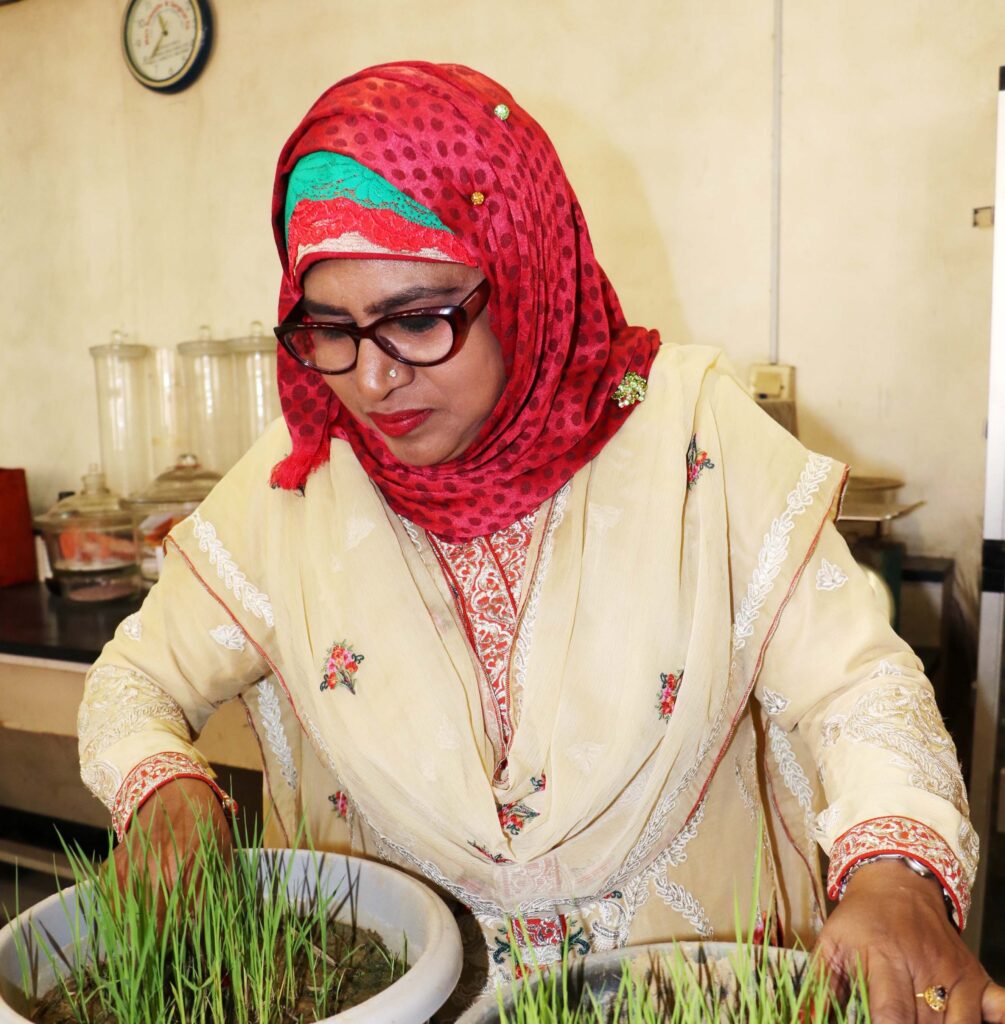In Dr. Nasrin Akter Ivy’s rise from a small-town girl to an illustrious ivy leaguer in Bangladesh, a striking feature is her drive to succeed and make a difference in her country. She might have benefitted from growing up in an educated household in Chandina, one of four children raised by loving and supportive parents, but Ivy’s success owes as much to her own will to excel in science against familiar odds.
As an undergraduate in the Bachelor of Science in Agriculture program, Ivy had succeeded in fulfilling her high school dream of joining the science world. But then came marriage during her very first year in the program and, soon after, the birth of her first child. The challenge of balancing family and school would have been enough to throw most women off track. Not Ivy. She persisted with the program, grateful for the support of her husband and family, and earned outstanding grades and awards in the process.
Trusting in her intellect and will to succeed, Ivy subsequently enrolled in a Master’s program that most other agricultural students found extremely intimidating: plant breeding and genetics. She had also, simultaneously, entered the job market by joining the Bangladesh Agricultural Research Institute (BARI) as a Scientific Officer, where she was involved with the hybrid maize development program.
Despite the arrival of her second child when she climbed the professional ladder to become an assistant professor at the Bangabandhu Sheikh Mujibur Rahman University (BSMRAU) in 2004, Ivy continued to nurture her professional dreams. She acknowledges, though, how tough the situation was:
“I can still remember those days working in the crop trial fields when my elder son would wait at the end of the aisle, gazing at his mother with sad eyes and endless anticipation,” she recalls. “I would leave cooked rice for the children to eat for lunch while I was in the field, but the food often got spoiled in the summer heat and left the children hungry most of the day. Yet the children never stopped supporting me during those difficult times, and they continue to do so today. I owe a lot to them!”
Familial endorsement combined with her desire to engage her creative intellectual faculties prompted Ivy to pursue a doctorate in genetics and plant breeding, facilitated by the Bangladesh Prime Minister’s scholarship. Today, Ivy is an esteemed Professor in the Department of Genetics and Plant Breeding at BSMRAU, a leading agricultural university in Bangladesh. She teaches both undergraduate and postgraduate students, supervises and conducts research on grain legumes and hybrid technology for aromatic rice, radish and other vegetable crops.
One of Ivy's most remarkable recent achievements has been the development of the country’s first aromatic hybrid rice variety that is also rich in zinc and iron. During the six years of research and trials, Ivy explored effective ways to add more of these two micronutrients into the variety. She finally settled on conventional breeding through biofortification as the best approach.
With support from HarvestPlus, the global leader in biofortification, Ivy’s hard work and dedication culminated in the release in 2016 of ‘BU Aromatic Hybrid dhan1’. The variety contains forty-six percent more zinc and at least 42 percent more iron compared with other varieties available to Bangladeshi farmers and consumers. The new variety’s ability to provide more zinc to consumers is especially welcome news for the roughly one-third of all Bangladeshi children under-five who are stunted or underweight. Ivy has become a strong advocate for biofortification at national and international forums dealing with nutrition for women and children.
Ivy is committed to raising the profile of women in science in order to inspire and provide role models for young women, and to ensure professional parity with men. “Women’s participation in science and engineering is declining further at the graduate level and in the transition to the workplace," she notes. “I strongly encourage my female students to pursue their passion in research and development. It is still a lot difficult for women to reach the same level as men, but the women who have succeeded in science have done so through their drive, honesty and, often, family support.”
*Photo Credit: S.Khan/HarvestPlus
**The author is a Senior Marketing and Communications Specialist with HarvestPlus-Bangladesh
